Another ex-Windows Phone exec weights in on the OS's failure, blames OEMs and carriers
3 min. read
Published on
Read our disclosure page to find out how can you help MSPoweruser sustain the editorial team Read more

The departure of Microsoft’s Terry Myerson has drawn out some commentary regarding the highest-profile failure during his tenure – that of Microsoft’s Windows Phone initiative.
Mr Myerson has already placed the blame firmly on the Windows CE kernel and the Windows Phone business model (though which part he did not explain), saying:
We had a differentiated experience, but it’s so clear in hindsight that the disruption in business model which Android represented was enormous, and that building our early versions of Windows Phone on an incomplete Windows CE platform, designed for small embedded systems, left us too hobbled to ever catch up
Now another Microsoft executive present during this key phase of Windows Phone’s development, Brandon Watson, has weighed in on Twitter regarding the failure of the OS.
Brandon Watson was a Senior Director for Windows Phone between March 2010 and February 2012, responsible for developer platform product management.
Responding to AdDuplex’s Alan Mendelevich, he denied that the app gap killed the OS. During Brandon’s reign, he famously managed to get 60,000 apps in the Windows Phone marketplace and appeared to have significant success in closing the app gap, getting many high profile apps on the platform, including famously Angry Birds.
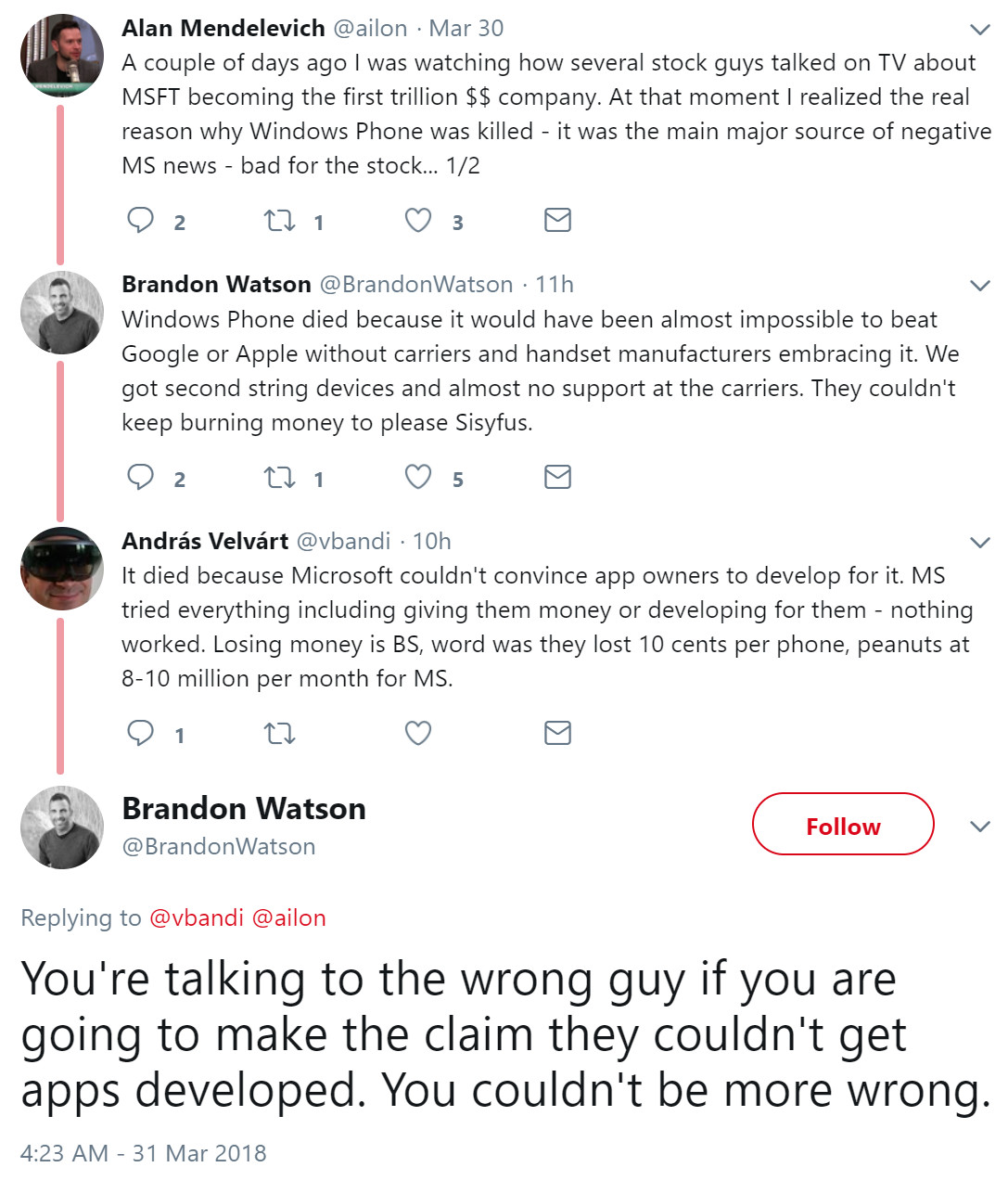 Instead, Brandon blames the issue on carriers and OEMs, saying:
Instead, Brandon blames the issue on carriers and OEMs, saying:
Windows Phone died because it would have been almost impossible to beat Google or Apple without carriers and handset manufacturers embracing it. We got second string devices and almost no support at the carriers. They couldn’t keep burning money to please Sisyfus.
In some ways the different nuggets of blame we see are a bit similar to a collection of blind men describing an elephant by feel – we never see the full picture and the blame always seems to be directed at someone else.
The fact is Microsoft made many mistakes and if I can just introduce my own view the real issues were:
- Apple envy – Microsoft wanted to create a device like the iPhone, which limited the freedom of OEMs to innovate
- The business model – the OS should always have been free, particularly when it shipped without cut and paste.
- Start-over-ritis – constantly rebooting the platform sapped it of any momentum in the market and with developers.
For me the biggest issue was the first – OEMs are closer to customers and able to respond more rapidly to the demands of users, which explains Samsung’s success even on the dodgy early Android platform, and also the failure of the Android Wear platform for example, which is as restrictive to OEMs as the Windows Phone model was.
Blaming OEMs for not giving Microsoft their best hardware, when the OS only supported processors from 2 years ago and tied their hands with chassis requirements is certainly not placing the blame where it belongs. Microsoft was simply too arrogant, taking on too much responsibility for the platform but was not able to innovate and deliver fast enough, with many OEMs and developers ending up waiting on Microsoft to deliver much needed platform updates.
Hopefully, Microsoft has been able to learn from their mistakes, but somehow I doubt it, and I suspect the biggest lesson they learnt is that they don’t do well in the consumer space, which as a consumer is a pity really.
Do our readers think Brandon is right, or did Microsoft simply mismanage the initiative from the get-go? Let us know below.




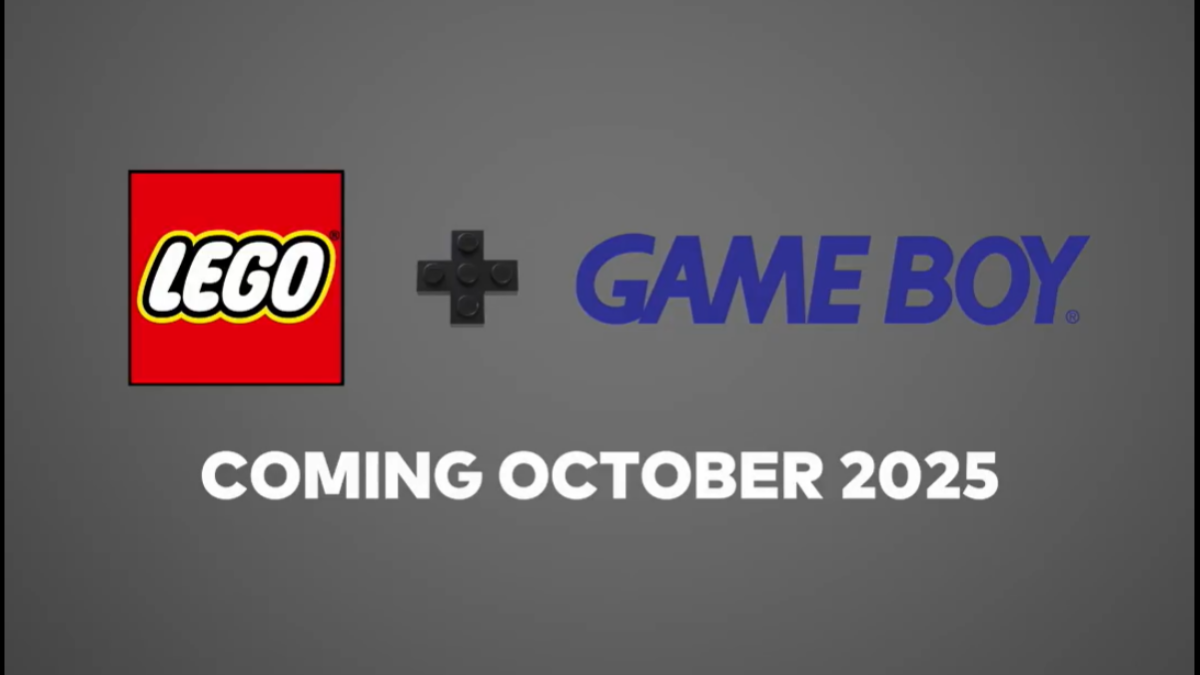
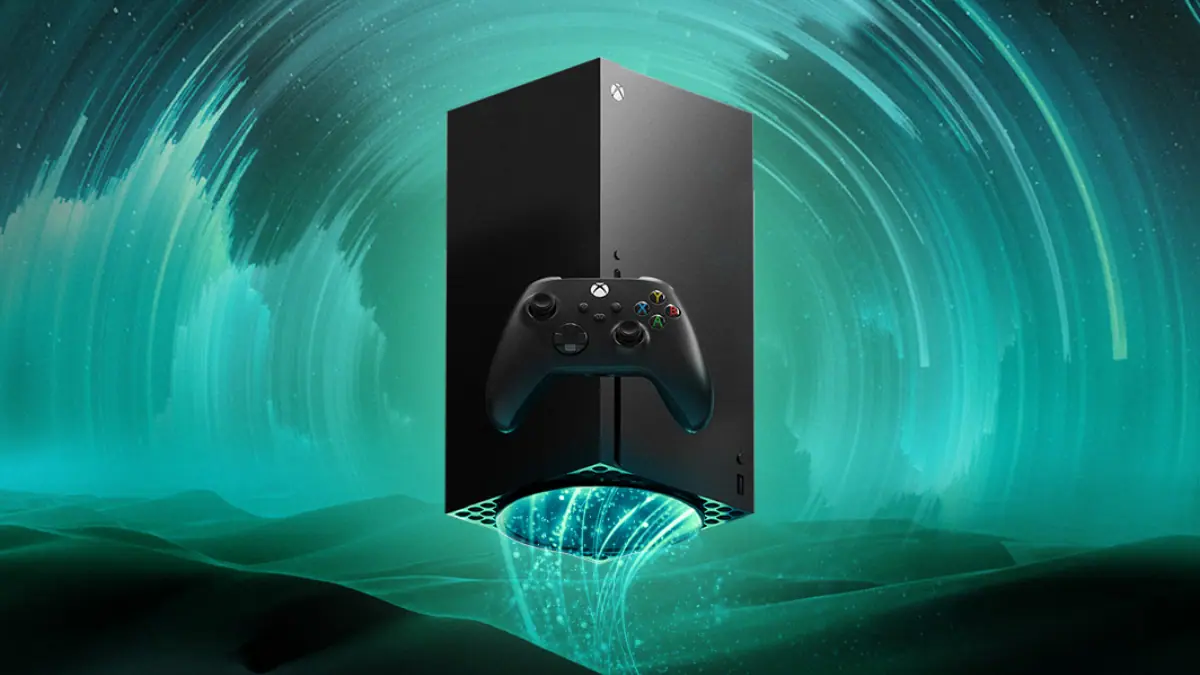
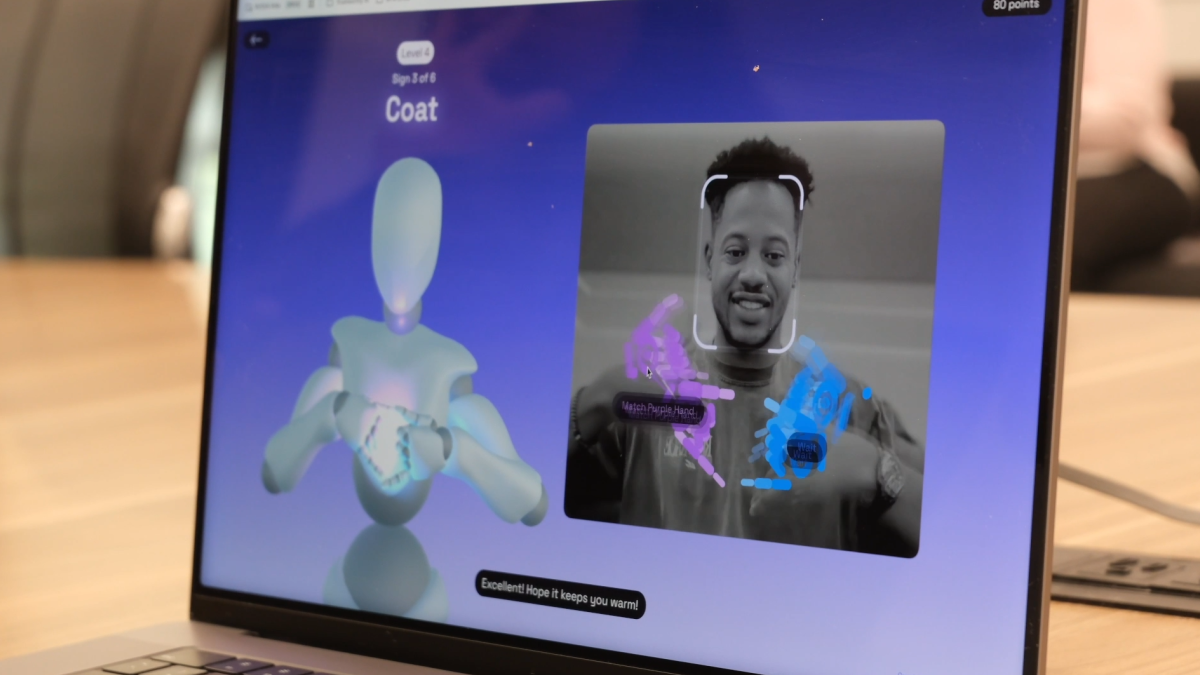

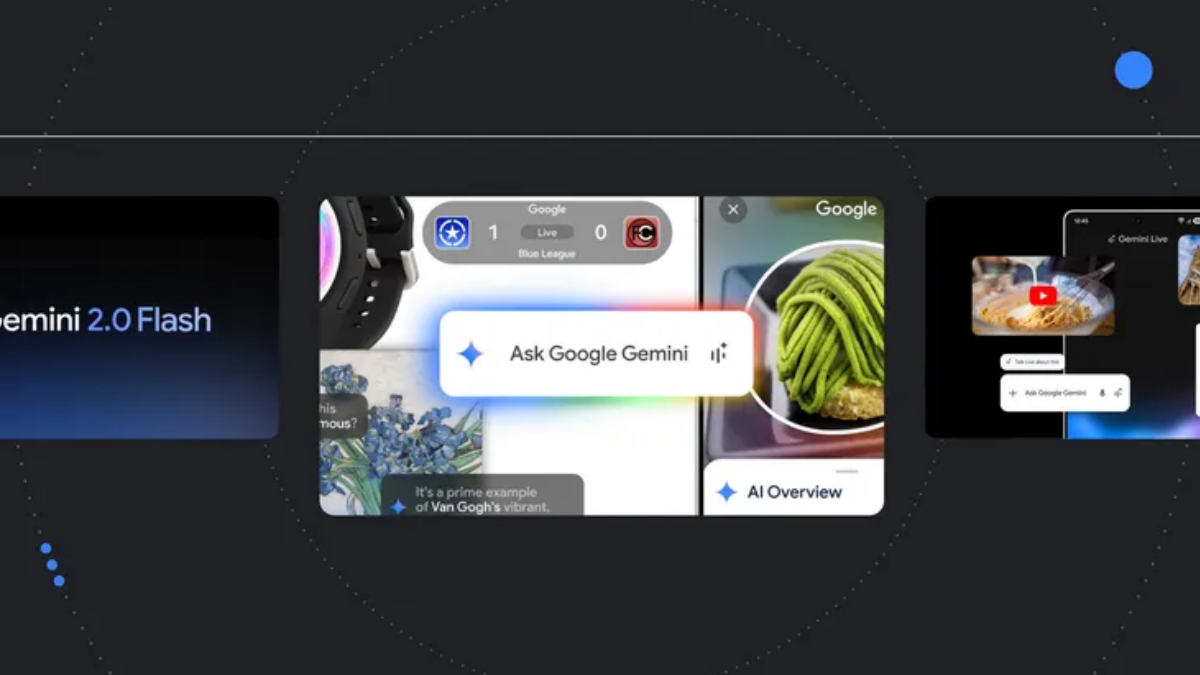
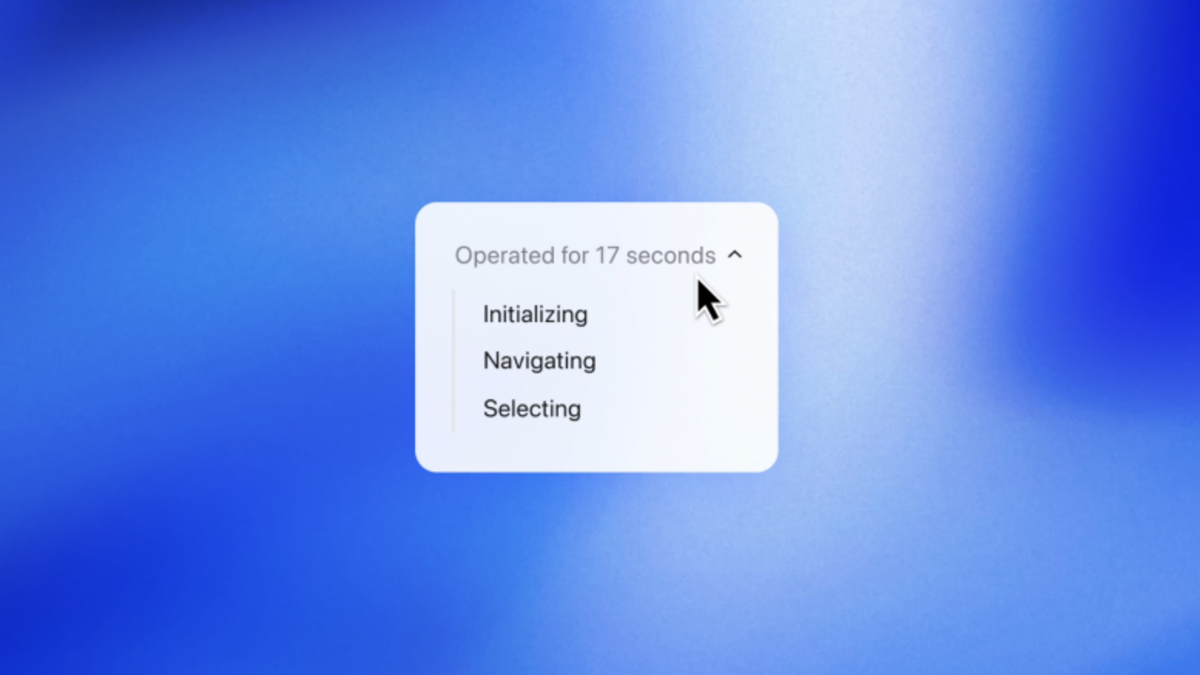
User forum
0 messages